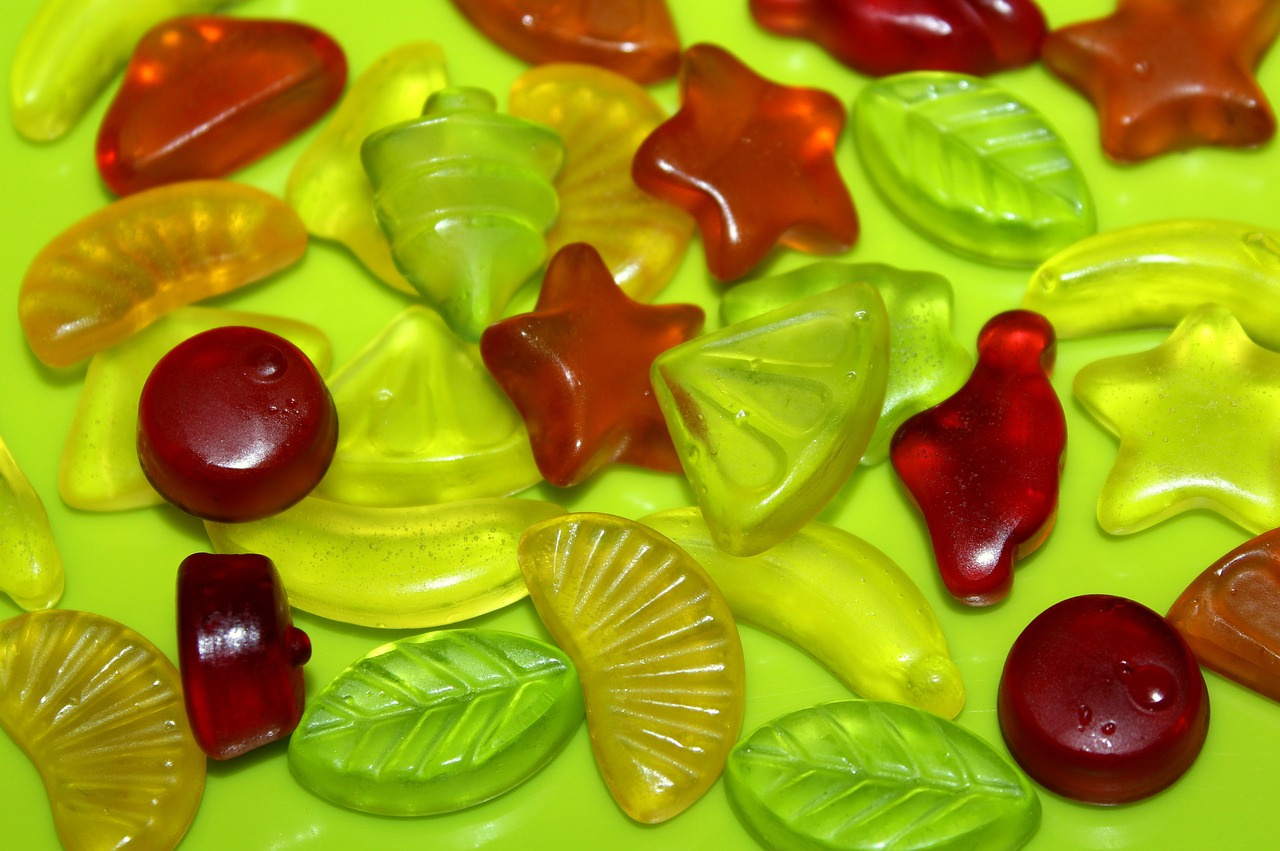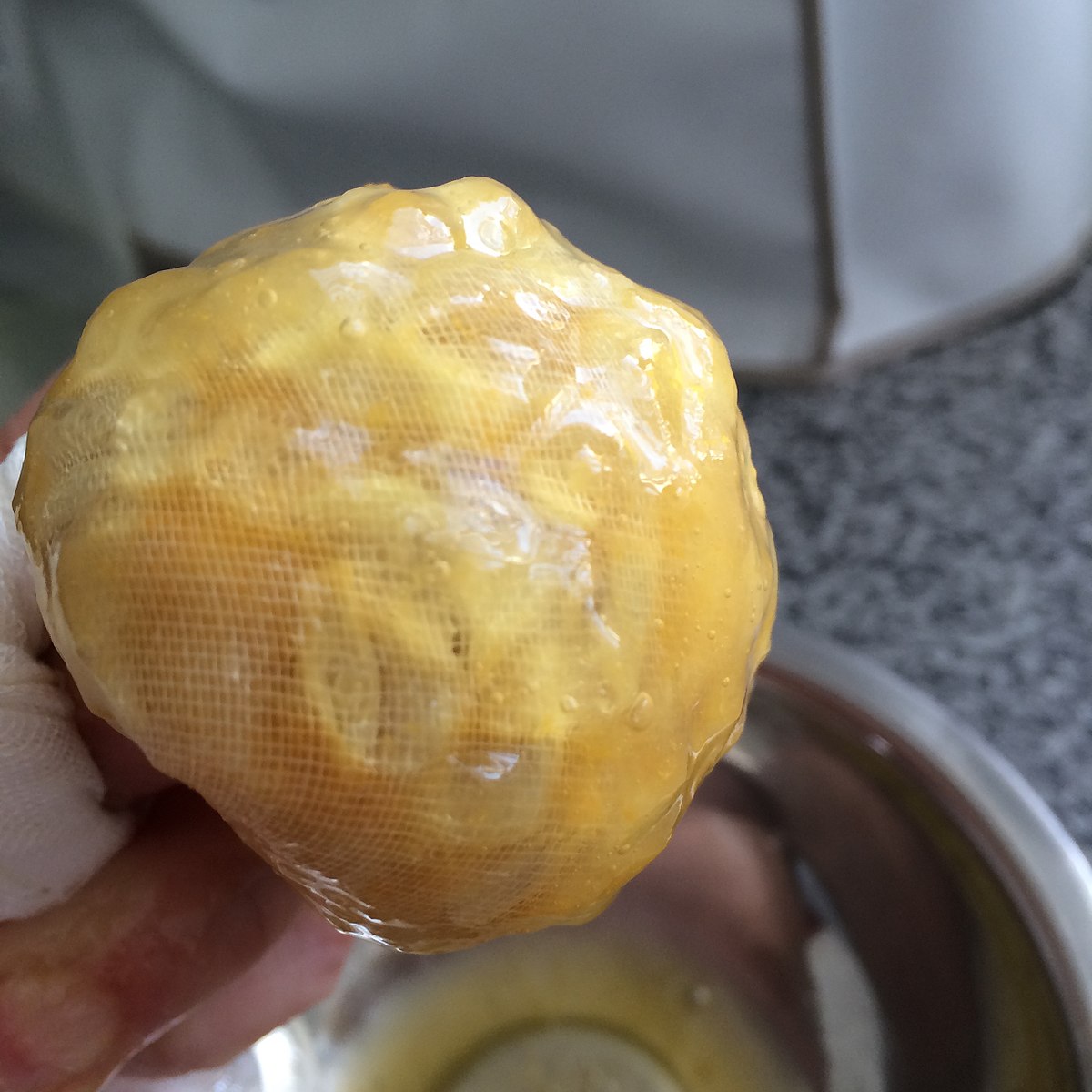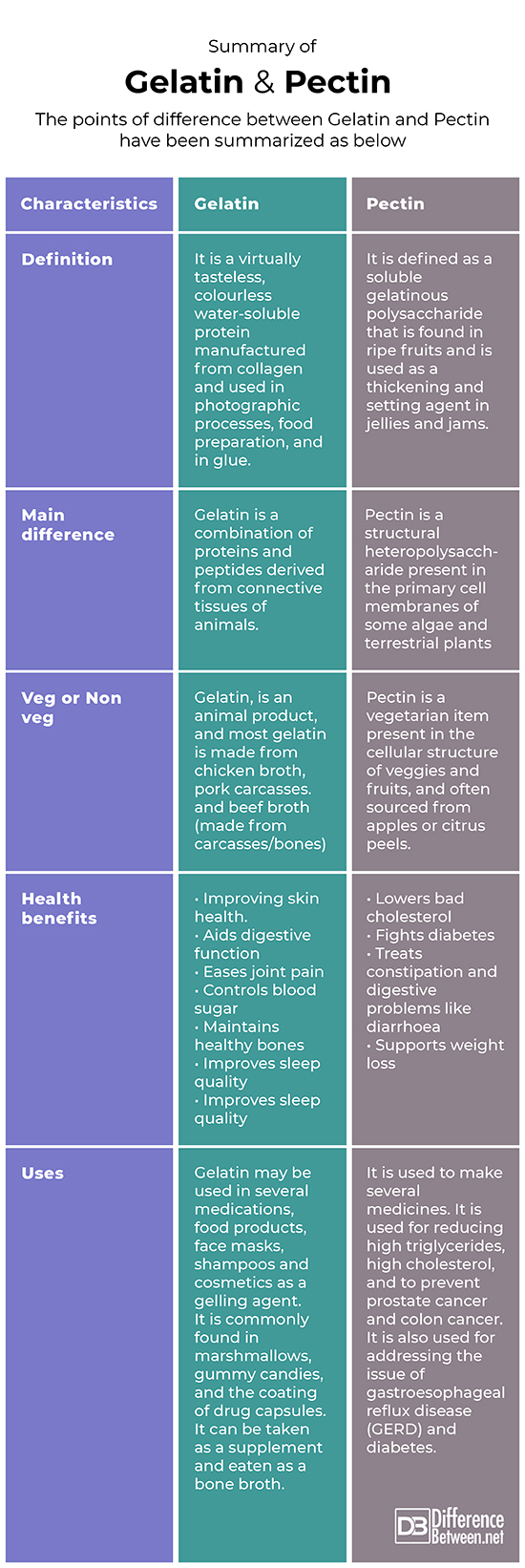Difference Between Gelatin and Pectin
What is Gelatin and Pectin?
Both pectin and gelatin are used to set, jell, and thicken certain foods. They comprise of different nutrients and possess different health benefits. In addition, they have different applications in food manufacturing and preparation. The primary difference between Gelatin and Pectin is the source from which they are derived.

Gelatin
Gelatin or gelatine is a natural, colourless, translucent, and flavourless food ingredient derived from raw collagen, derived from animal body parts (meat industry). It is brittle when dry and gummy when moist and contains 18 amino acids, some of which are a vital part of a healthy diet.

Pectin
Pectin is basically a starch called a heteropolysaccharide, that is present naturally in the cell membranes of vegetables and fruits. Pectic gives structure to fruits and vegetables. When cooked to a high temperature (220 F) in combination with acid and sugar, it forms a gel. It is used in manufacture of jellies and jams, as because of pectin, they develop a semi-solid texture when they cool.
Difference between Gelatin and Pectin
Description
Gelatin
It is a type of protein which is derived from partial hydrolysis of collagen. It is present in animal parts that offer us with the “building blocks” of proteins – the amino acids. Gelatin’s unique amino acid profile is the reason for most of its health benefits.
Pectin
Pectin is a naturally occurring polysaccharide found in apples, berries, and other fruit. It is a natural fiber found in high quantities in apples and oranges, with the highest concentrations in the cores, skins, and seeds. When heated in combination with sugar, it causes a thickening that is characteristic of jellies and jams.
Nutritional profiles
Gelatin
Gelatin comprises of 98 – 99% proteins. It is an excellent source of protein (24 gms in every ounce). The remaining 1–2 percent is water and very small amounts of minerals and vitamins. It is a rich food source of the amino acids. 24 grams of protein in each ounce supplies over 42 percent of the daily protein requirement for men and 52 percent of that for women.
The most abundant amino acids in gelatin derived from mammals include;
- Glycine- 27%
- Valine – 14%
- Proline- 16%
- Hydroxyproline- 14%
- Glutamic acid –11%
Pectin
Pectin is a source of soluble fibre and a carbohydrate. The soluble fibre present in pectin is helpful in reducing cholesterol, stabilizing blood sugar and helping to feel fuller. As per the studies reported by USDA (U.S. Department of Agriculture), a 1.75-ounce packet of dried pectin has about 162 calories, all from carbohydrates.
Dry pectin has about –
- 162 calories
- 0 grams fat
- 4 grams dietary fibre
- 0.2 milligrams Cu
- 45 grams carbohydrates
- 0 milligrams cholesterol
- 100 milligrams Na
- 0.2 milligrams Zn
- 0.01 milligrams Mn
Health benefits
Gelatin
It is beneficial for;
- Helps improve sleep quality
- Protects joints and lowers joint pain
- Improves gut health and digestion
- Lifts mood and improves your cognitive abilities
- Helps maintain heart health
- Improves skin health
- Maintains strong bones
- Helps you feel full
Pectin
It is beneficial for;
- High cholesterol
- Ulcerative colitis.
- Constipation
- Diarrhea
- Diabetes
- Heartburn
- Metabolic syndrome
- Irritable bowel syndrome
Apple pectin is also said to safeguard against colon cancer. Pectin is also used to regulate bowel movements.
Temperature
Gelatin
Gelatin requires a low temperature to set
Pectin
Pectin sets at a relatively high temperature
Sources
Gelatin
Gelatin comes from processed cartilage, bones and ligaments and is therefore a meat product. Gelatin is not suitable for use in vegan dishes.
Pectin
Pectin is derived from fruits and veggies, which is why it is often considered the primary vegan gelatin alternative. It is prepared by using fruits like apples and oranges.
Side effects and safety
Gelatin
Gelatin in doses higher than 10 grams daily can cause sensation of heaviness in the stomach, unpleasant taste, heat burn, bloating, and belching. Gelatin can also result in allergic reactions in some people.
Since gelatin comes from animals, some people worry about unsafe manufacturing practices could result in contamination with diseased animal tissues like mad cow disease. Though the danger and risk seem to be low, many have raised voice against using animal-derived supplements like gelatin.
Pectin
When taken by mouth in combination with insoluble fiber and guar gum (the combination used to reduce blood fats and cholesterol), pectin can result in gas, stomach cramps, loose stools, and diarrhoea. People who get exposed to pectin dust at work, may develop asthma.
Summary
The points of difference between Gelatin and Pectin have been summarized as below:

- Difference Between Global Warming and Greenhouse Effect - May 18, 2024
- Difference Between Vaccination and Immunization - March 3, 2024
- Difference Between Selective Mutism and Autism - February 25, 2024
Search DifferenceBetween.net :
Leave a Response
References :
[0]Image credit: https://commons.wikimedia.org/wiki/File:Pectin_from_Seville_oranges.jpg
[1]Image credit: https://www.maxpixel.net/Jelly-Sweets-Gelatin-Colorful-Jelly-Beans-Food-3983735
[2]Mariod, A. A., & Fadul, H. (2013). Gelatin, source, extraction and industrial applications. Acta Scientiarum Polonorum Technologia Alimentaria, 12(2), 135-147.
[3]Sharma, B. R., Naresh, L., Dhuldhoya, N. C., Merchant, S. U., & Merchant, U. C. (2006). An overview on pectins. Times Food Processing Journal, 23(2), 44-51.
[4]Thakur, B. R., Singh, R. K., Handa, A. K., & Rao, M. A. (1997). Chemistry and uses of pectin—a review. Critical Reviews in Food Science & Nutrition, 37(1), 47-73.
